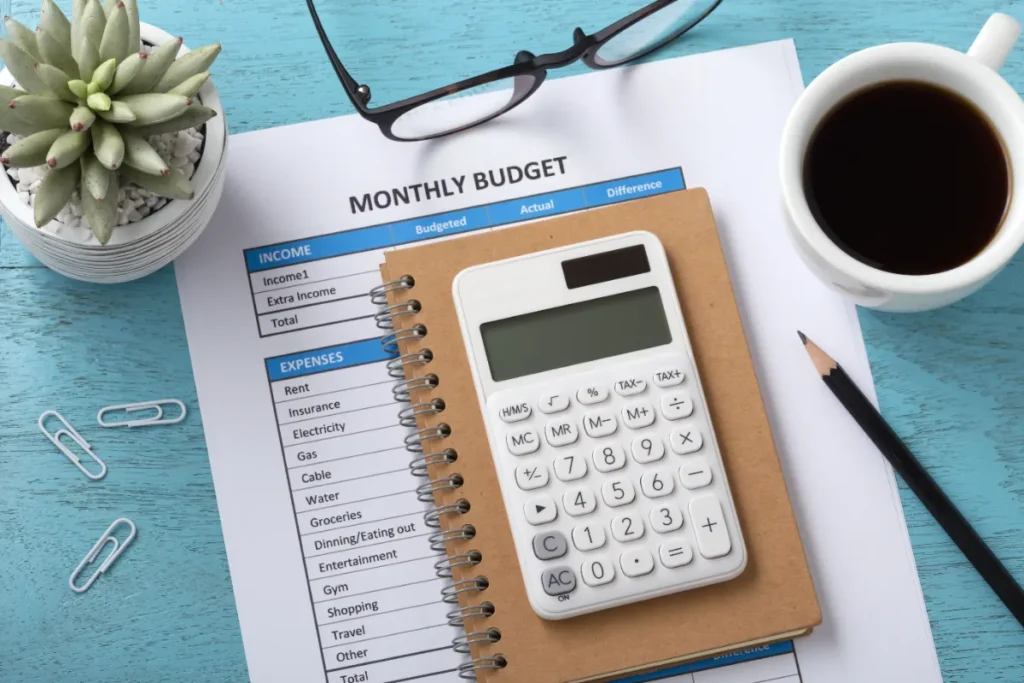
In a world where economic uncertainty is often the norm, having a sturdy and comprehensive budget is more than just a tool; it’s a necessity for financial well-being and independence. A well-crafted budget not only helps in managing expenses but also paves the way for achieving long-term financial goals. This extensive guide delves deeper into the ins and outs of budgeting, offering insights and practical strategies for anyone looking to take control of their financial destiny.
Comprehensive Income Analysis: The Backbone of Your Budget
In-depth Exploration of All Income Sources: Understanding every stream of income is critical for effective budgeting.
- Primary Income: This usually includes your regular salary or wages. It’s important to consider the net amount (after tax) as this represents your actual disposable income.
- Secondary and Passive Income: All additional earnings such as part-time work, freelance income, rental revenue, or dividends from investments should be considered. Given their variable nature, calculate a conservative average based on the last year’s earnings to ensure accuracy.
- Irregular Income: For those with fluctuating incomes, such as commission-based jobs or seasonal work, averaging income over a longer period, like a year, can provide a more stable figure for budgeting purposes.
Expansive Analysis of Fixed Expenses
Housing and Related Utilities: This category typically consumes a significant portion of the budget. It includes mortgage or rent payments, property taxes (for homeowners), home insurance, and all utilities like electricity, water, gas, and waste disposal services. Regular maintenance costs for homeowners and renter’s insurance for tenants should also be factored in.
Insurance and Debt Repayments: Detail all insurance policies (life, health, auto, property) and monthly debt obligations (credit card payments, student loans, personal loans, car loans). Focus on repayment strategies that prioritize high-interest debts to relieve the overall financial burden.
Subscriptions and Memberships: Go over recurring expenses such as streaming services, digital subscriptions, gym memberships, and club dues. Evaluate the cost-benefit of each and consider downsizing or eliminating non-essential services.
Detailed Variable Expenses Management
Grocery and Dining Budgeting: Track and categorize your food expenses. Employ strategies such as bulk buying, couponing, and cooking at home to reduce costs. Set a realistic budget for dining out, ensuring it aligns with your financial goals.
Transportation and Travel Costs: Account for daily commuting expenses, as well as periodic costs like vehicle maintenance, insurance, and registration. For public transport users, include costs like monthly passes. Also, budget for annual or semi-annual travel, including vacations and family visits.
Leisure and Personal Spending: Allocate a sensible portion of your budget for hobbies, personal care, and entertainment. This could include everything from movie tickets and books to spa visits and sports equipment. It’s about finding a balance that allows enjoyment without compromising financial objectives.
Strategic Savings and Investment Planning
Robust Emergency Fund: Establishing a solid emergency fund is crucial. Aim for a fund that can cover at least 6-12 months of living expenses. This acts as a financial buffer against unexpected events and provides peace of mind.
Retirement Savings and Investments: Consistent contributions to retirement accounts (such as 401(k)s and IRAs) are essential. Look into various investment options, including stocks, bonds, and real estate, to diversify your portfolio. Regularly review and adjust your investment strategies to align with your risk tolerance and financial goals.
Anticipating and Budgeting for Irregular and Seasonal Expenses
Comprehensive Planning for Occasional Expenditures: Include expenses that may not occur monthly but can significantly impact your budget, such as home repairs, vehicle maintenance, holiday spending, and annual memberships or subscriptions.
Budgeting for Gifts and Celebrations: Allocate funds for special occasions like birthdays, anniversaries, weddings, and major holidays. Proactive planning in this area helps in managing these costs effectively.
Advanced Budget Review and Adaptation Techniques
In-depth Monthly Financial Audits: Conduct thorough reviews of your budget each month. This involves analyzing spending patterns, tracking progress towards financial goals, and identifying potential areas for improvement or cost-saving.
Dynamic Budget Adjustments for Life Transitions: Your budget should be flexible and adaptive to life changes. Whether it’s a career change, a new family member, or a significant life event like purchasing a home, your budget needs to be updated to reflect these shifts.
Embracing Budgeting as a Path to Financial Enlightenment
Budgeting is much more than a mere financial chore; it’s a strategic approach to life that empowers you to make informed financial decisions. A comprehensive and well-maintained budget leads to financial literacy, stability, and the freedom to achieve your dreams. Remember, effective budgeting requires honesty, discipline, and a willingness to adapt. By embracing these in-depth budgeting strategies and maintaining a flexible and proactive approach to your finances, you are setting the stage for a life of financial stability, independence, and prosperity. Budgeting is a lifelong journey, one that requires continuous learning and adjustment but ultimately leads to a rewarding destination of financial control and peace of mind.

